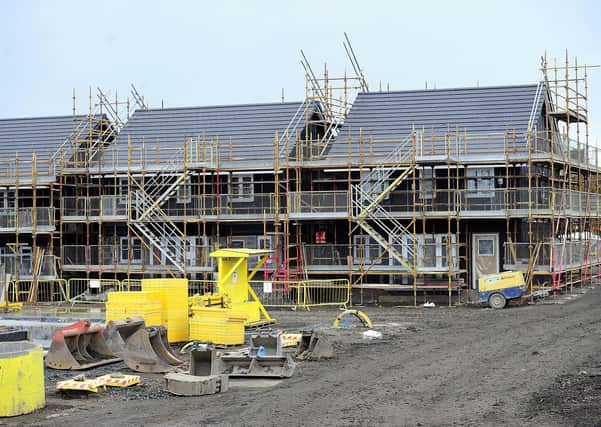Have your say on planning policy amendment – Fraser Mitchell


The proposal to remove the presumption in favour of sustainable development from the Scottish planning system has raised serious concerns from the development industry – and I fear it could cause a shortage of affordable housing and force first-time-buyers out of the market.
The Scottish Government has launched a consultation on a “technical amendment” to Scottish Planning Policy (SPP) – a “policy statement on how nationally important land use planning matters should be addressed across the country” – and it’s the suggestion of removing paragraph 33, the presumption in favour of sustainable development, which I believe could have serious implications.
Some background is required before I explain why.


Advertisement
Hide AdAdvertisement
Hide AdThe presumption applies only in limited circumstances. The statutory framework requires planning applications to be determined in accordance with the development plan unless material considerations indicate otherwise.
The balance here favours the development plan. Where the development plan is out-of-date (more than five years old or where there is a shortfall in the five-year effective housing land supply), the presumption becomes a significant material consideration. Where, therefore, there is a shortage in the five-year housing land supply, planning permission should be granted unless the planning authority can demonstrate significant and demonstrable adverse impacts that outweigh the application’s contribution to sustainable development.
This process is referred to as the tilted balance, with the weight attributed to the presumption reflecting the extent of any shortage in the five-year effective housing land supply.
The importance of the presumption should not be underestimated. It provides a release valve when development plans are out-of-date, and therefore cannot be relied upon. The corollary of this also applies; where development plans are functioning, the presumption will not form part of the determination process.
In the context of delivering housing, it provides a way for new development to meet any shortfall in the housing land supply which would otherwise not be addressed through the development plan. It does not lead to development at any cost – safeguards remain through the consideration of adverse impacts.
Just as the importance of the presumption should not be underestimated, nor should its removal from SPP.
The impact is likely to be felt in three broad areas.
The first relates to the government’s current commitment to ambitious carbon reduction by 2045. The credibility of a government seeking to do this in the face of removing a policy based on sustainable development is, at best, questionable.
The second concerns the consistency of policy-making. In little over a quarter of a year, the Scottish Government has gone from declaring the presumption to be a key policy, to withdrawing it. This suggests a government unclear on its own policy aims and outcomes.
Advertisement
Hide AdAdvertisement
Hide AdThe third relates to the delivery of new homes. Out-of-date development plans are a fact of planning life in Scotland. If the delivery of homes is to be addressed exclusively by the plan-led system, planning authorities should be adequately resourced to produce well-formulated plans within the relevant timescales.
There is a chronic shortage of homes in Scotland. The last time Scotland as a nation delivered the number of homes required to meet annual need and demand was 2007. This continuing shortage, which removal of the presumption will exacerbate, will mean fewer affordable homes available to people in genuine housing need, and a constrained supply of new housing stock – so prices will rise, squeezing more people out of the market, particularly young people looking to buy for the first time.
The Scottish Government has justified its proposal to remove the presumption on the basis that the impact of coronavirus may lead to development plans falling out of date before replacement plans are adopted. Removing the presumption because of this concern is far from proportionate. More learned commentators have suggested simply extending the lifespan of existing development plans as a measured and obvious way to overcome the government’s concern. I agree. After all, the person with an itchy foot would be best-advised to scratch it, rather than cut it off.
The consultation is open until 9 October and I would encourage anyone with an interest in development, particularly housebuilding, to respond to it.
Fraser Mitchell is a Planning Partner with Shoosmiths